Publikationen
-
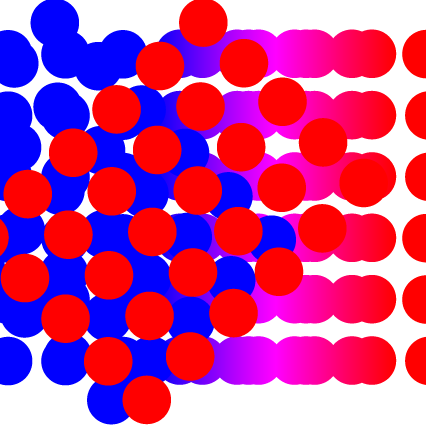 „Wildekeit“ und Widerspruch. Poetik der Diskrepanz bei Konrad von Würzburg
„Wildekeit“ und Widerspruch. Poetik der Diskrepanz bei Konrad von Würzburg
-
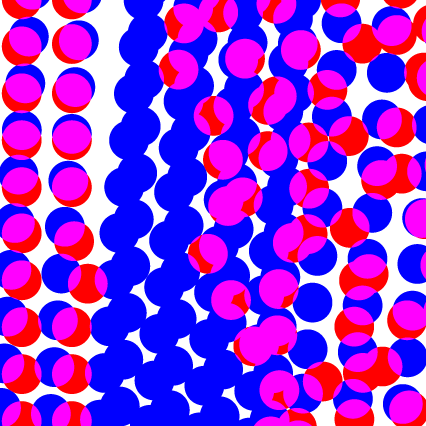 Antagonisten im höfischen Roman? Eine Skizze
Antagonisten im höfischen Roman? Eine SkizzeDer Beitrag skizziert Darstellung und vielfältige Funktionen ausgewählter Gegenfiguren im höfischen Roman um 1200. Vom Antikenroman abgesehen begegnen nur selten Gegenspieler auf Augenhöhe, die ein entgegengesetztes Wertsystem repräsentieren und konsequent bis zum Ende gegen den Helden agieren. Die Texte sind protagonistenzentriert; ein gleichwertiges narratives Gegenüber wird kaum entworfen. Insofern wäre der Begriff ‘Antagonist’ für Artus-, Gral- und Tristanroman zu hinterfragen.
-
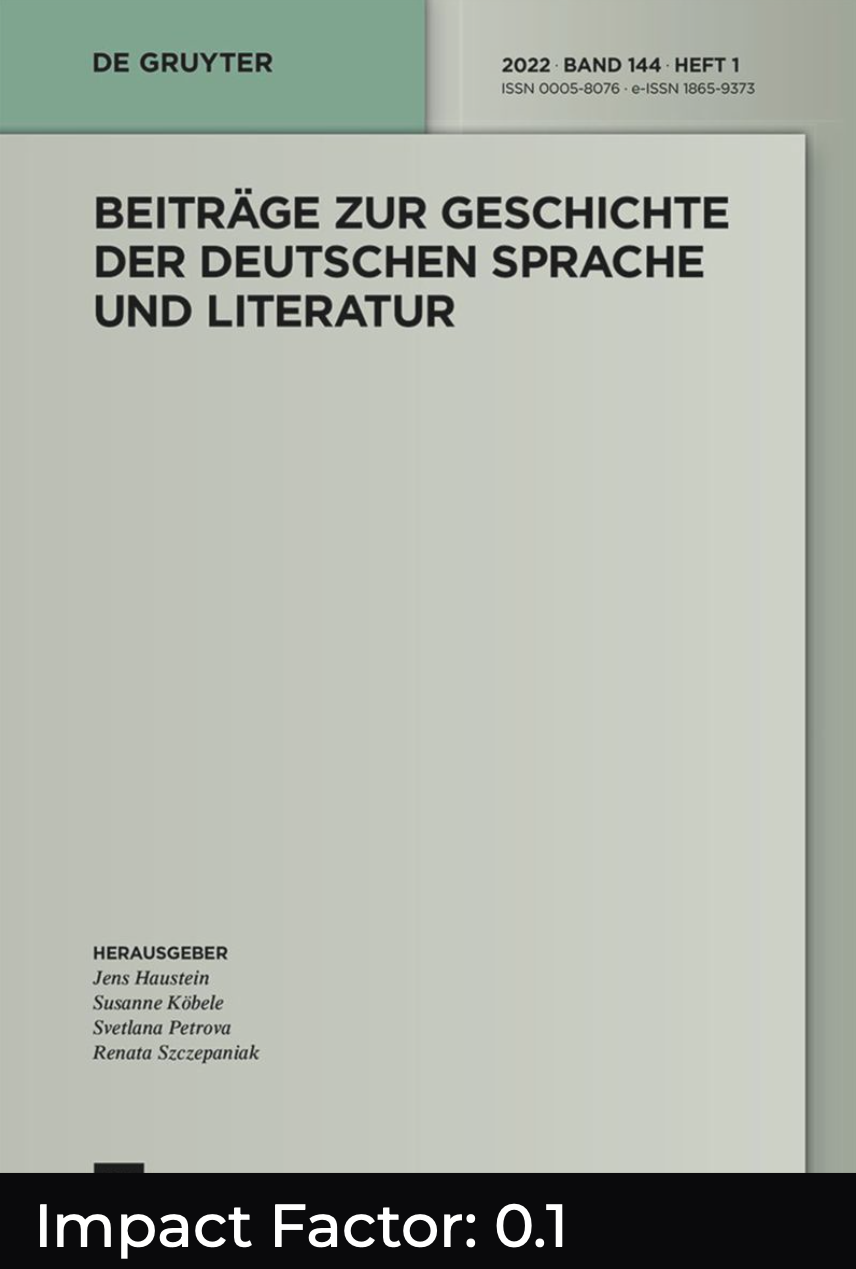 Widerspruch als Erzählprinzip in der Vormoderne? Eine Projektskizze
Widerspruch als Erzählprinzip in der Vormoderne? Eine ProjektskizzeIn premodern narratives contradictions are omnipresent – conflicting concepts, logical inconsistencies, acts of objection. In a narratological perspective ›contradiction‹ – conflicts of incompatible knowledges and narrative patterns; inconsistencies in or between speech (by narrator or characters) and action; contradictory or inconsistent information and motivation – is apt to subvert, complicate, or enrich the textual production of meaning. The project ›Contradiction as a Narrative Principle in Premodern Narrative‹ (University of Bremen) explores different types of contradictions in medieval epic and romance.
-
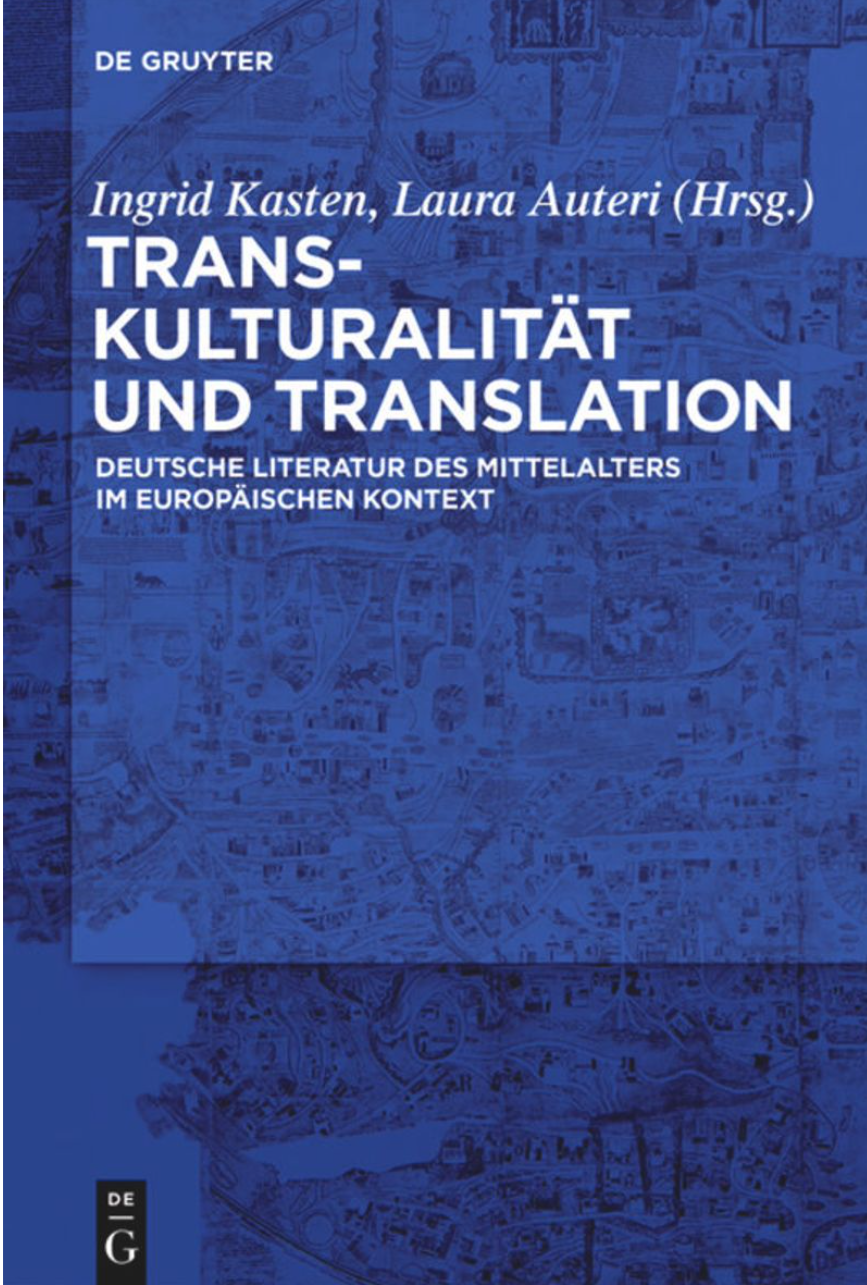 Erzählen in transkultureller Perspektive. Zur Poetologie der Widersprüche in der europäischen Heldendichtung
Erzählen in transkultureller Perspektive. Zur Poetologie der Widersprüche in der europäischen Heldendichtung
-
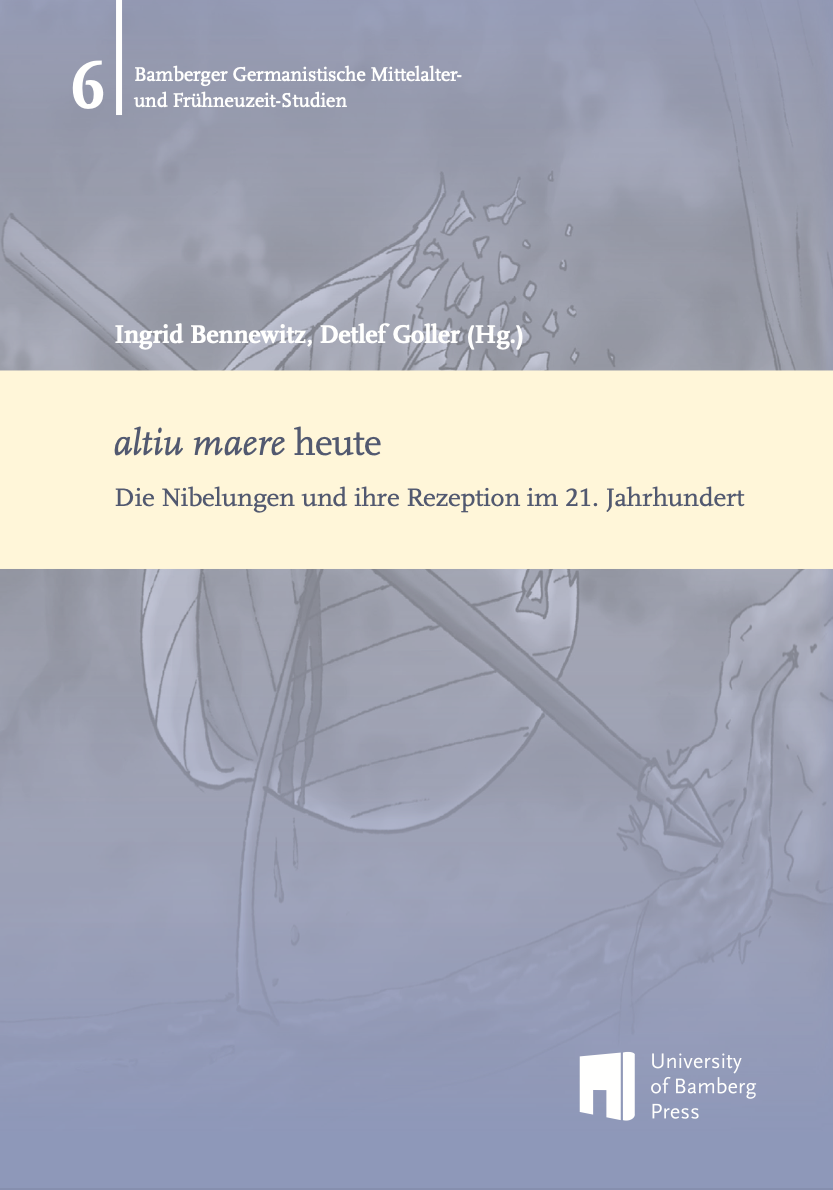 Kriemhild im 21. Jahrhundert. Variationen über eine widersprüchliche Figur
Kriemhild im 21. Jahrhundert. Variationen über eine widersprüchliche Figur
-
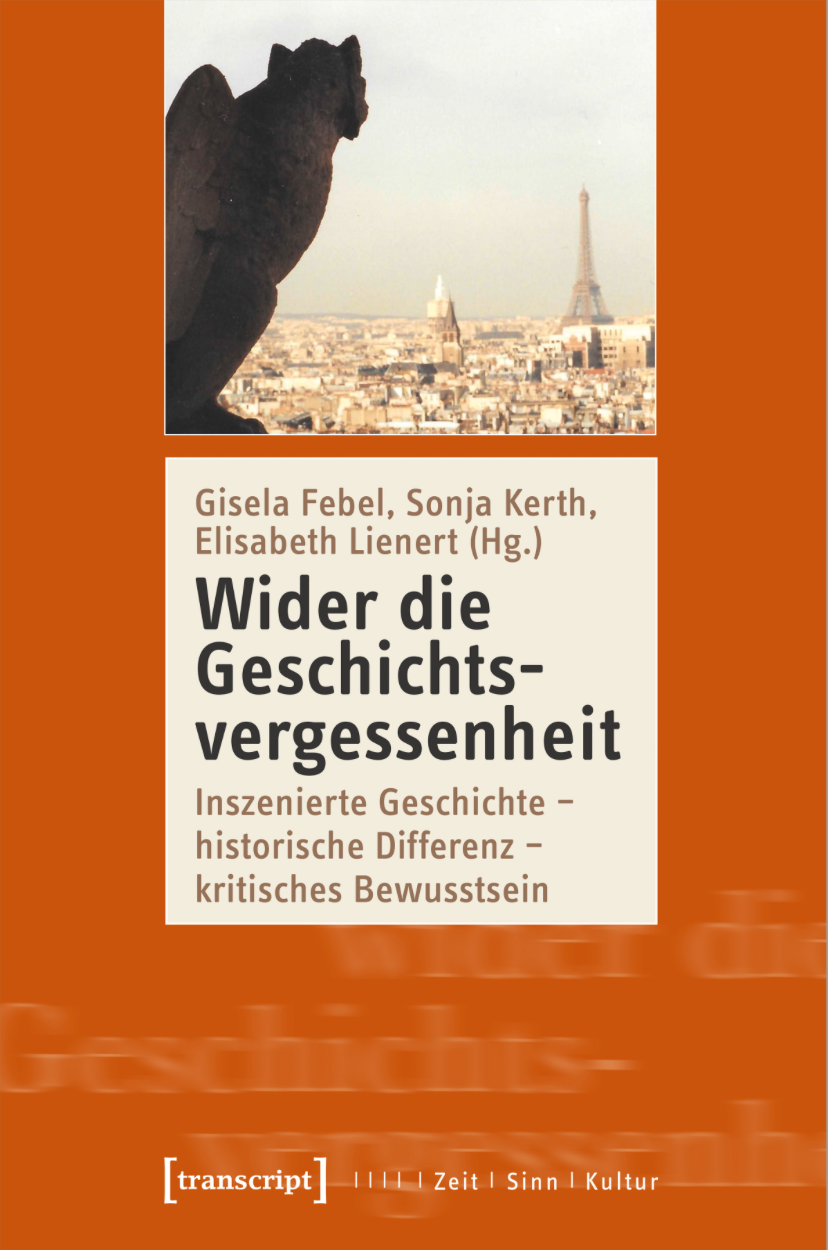 Schichten von Geschichte in aktueller Nibelungenrezeption
Schichten von Geschichte in aktueller Nibelungenrezeption
-
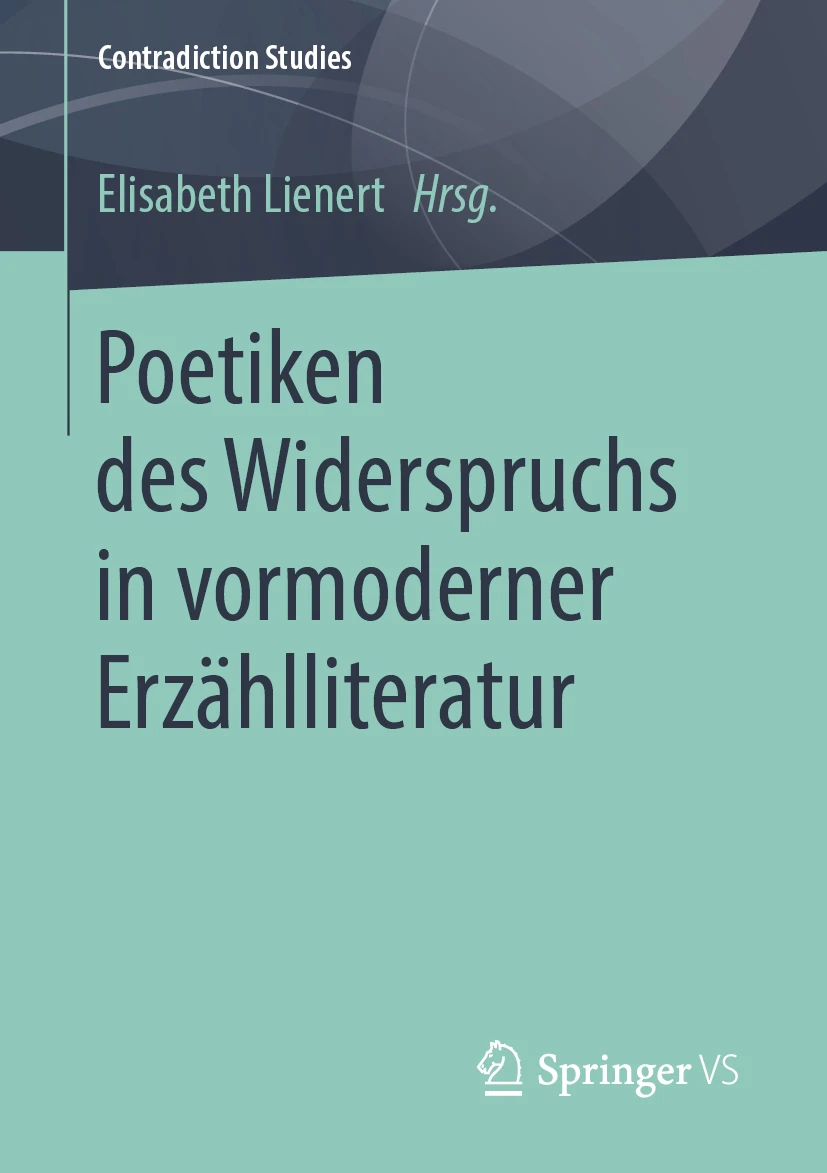 Poetiken des Widerspruchs in vormoderner Erzählliteratur
Poetiken des Widerspruchs in vormoderner ErzählliteraturDieser Band enthält grundsätzliche Überlegungen und textbezogene Fallstudien zu poetologischen Potenzialen von Widersprüchen und Verwandtem in deutschen und europäischen Erzähltexten vom 12. bis zum 17. Jahrhundert. Untersucht werden Akte der Widerrede und Phänomene der Unvereinbarkeit, widersprüchliche Konzeptualisierungen und narratologische Brüche, epistemologische Bedingungen der Wahrnehmung von Widersprüchlichkeit, Aspekte einer Poetologie des Widerspruchs als Mittel der Sinnkomplexion.
-
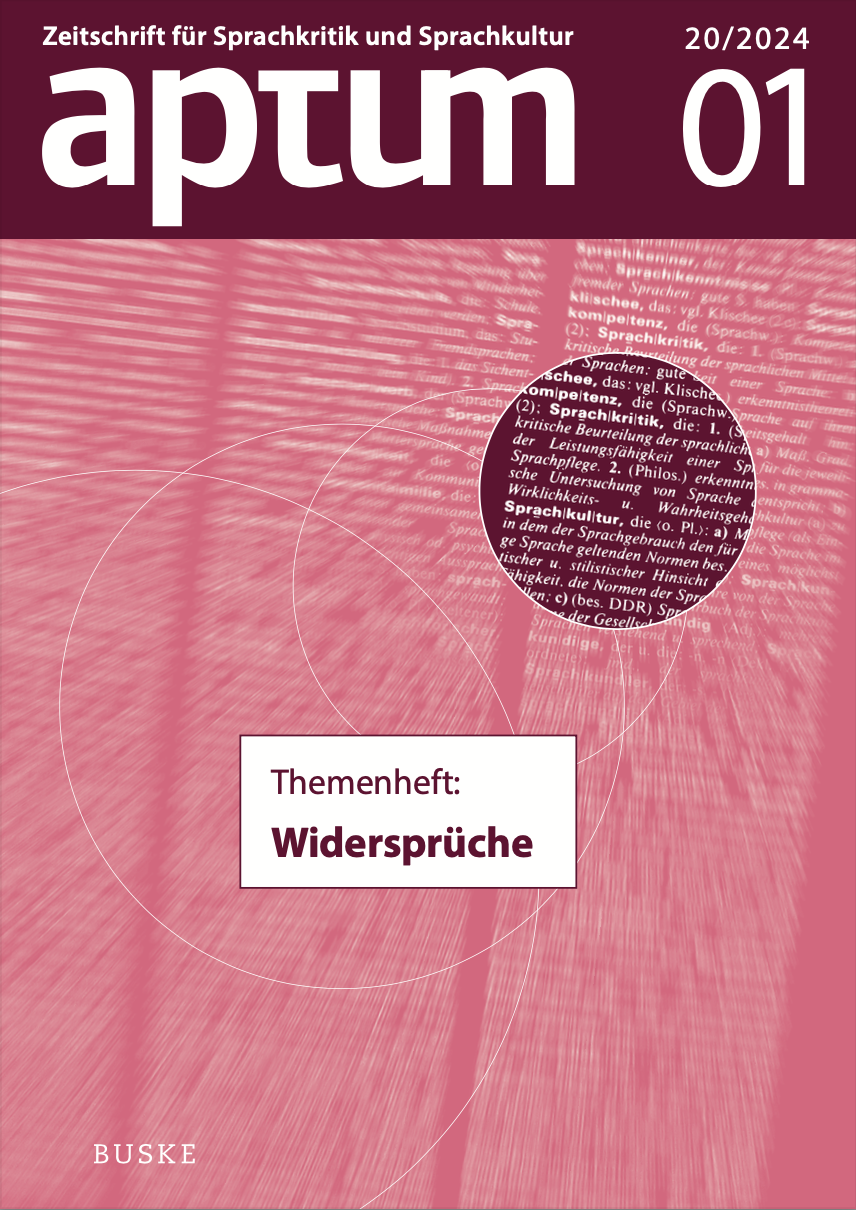 Zur Ästhetik von Widerspruchspraxen am Beispiel des feministischen Abtreibungsdiskurses in den 1970er Jahren
Zur Ästhetik von Widerspruchspraxen am Beispiel des feministischen Abtreibungsdiskurses in den 1970er JahrenIn this article, the proposal is made to analyse practices of contradiction with regard to their aesthetic potential. On the one hand, this is intended to demonstrate the diverse possibilities of contradiction studies and, on the other, to emphasise the role of aesthetic texts in protest discourses. Texts from the feminist abortion discourse will be used as examples.
-
 Disruptive und diskursive Ereignisse. Ein Vorschlag zur Ausdifferenzierung mit Beispielen aus dem feministischen Abtreibungsdiskurs Disruptive und diskursive Ereignisse
Disruptive und diskursive Ereignisse. Ein Vorschlag zur Ausdifferenzierung mit Beispielen aus dem feministischen Abtreibungsdiskurs Disruptive und diskursive EreignisseVor dem Hintergrund von Disruption werden in diesem Artikel geltende Konzepte von diskursivem Ereignis hinterfragt und miteinander in Beziehung gesetzt. Die davon abgeleiteten disruptiven Ereignisse werden als eine Subkategorie von diskursivem Ereignis verstanden. Am Beispiel des feministischen Abtreibungsdiskurses wird diesem Ansatz gefolgt und mittels einer Analyse von Praxen des Widersprechens ermittelt, inwieweit durch feministische Akteur*innen die Urteile des Bundesverfassungsgerichts von 1975 und 1993 als disruptive Ereignisse konstruiert werden.
-
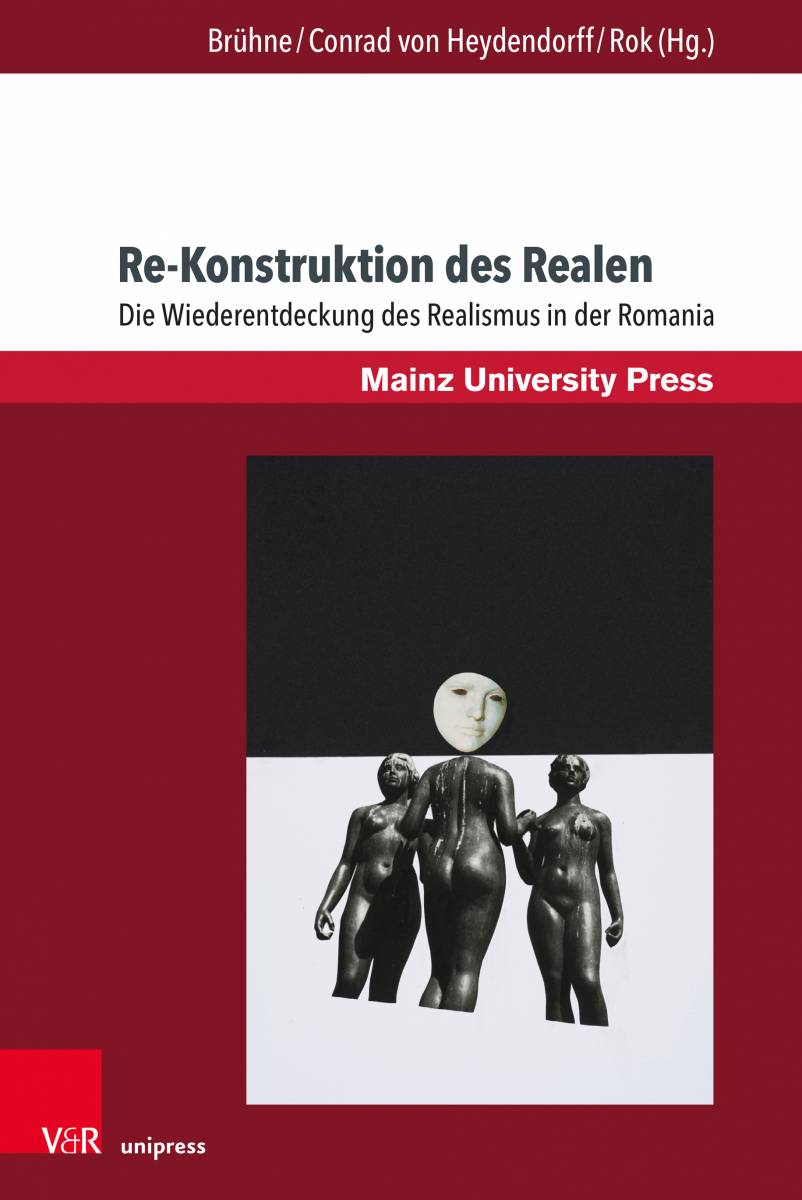 Realismus, Groteske, Ethik des Überlebens in der aktuellen haitianischen gesellschaftskritischen Literatur am Beispiel von Kettly Pierre Mars
Realismus, Groteske, Ethik des Überlebens in der aktuellen haitianischen gesellschaftskritischen Literatur am Beispiel von Kettly Pierre Mars
-
 Geschichtsdenken in historischen Romanen über die Vormoderne
Geschichtsdenken in historischen Romanen über die VormoderneAngesichts des wachsenden Populismus und Rechtsradikalismus ist der Kampf gegen Geschichtsvergessenheit im Denken und Handeln wieder höchst aktuell. Auf den ersten Blick scheint Geschichtsvergessenheit – zumindest in Bezug auf die Vormoderne – aber kaum vorzuliegen: Mittelalter, Renaissance und Frühe Neuzeit erfahren in Romanen, Dramen und populären Medien einen Boom. Doch auch und gerade hier ist ein aktives An-Denken gegen Simplifizierungen, Mythisierungen und Verfälschungen dringend nötig. Die Beiträger*innen des Bandes zeigen, dass es für ein kritisches Bewusstsein unumgänglich ist, historische Differenz und mediale Filter wahrzunehmen und deren Effekte zu reflektieren.
-
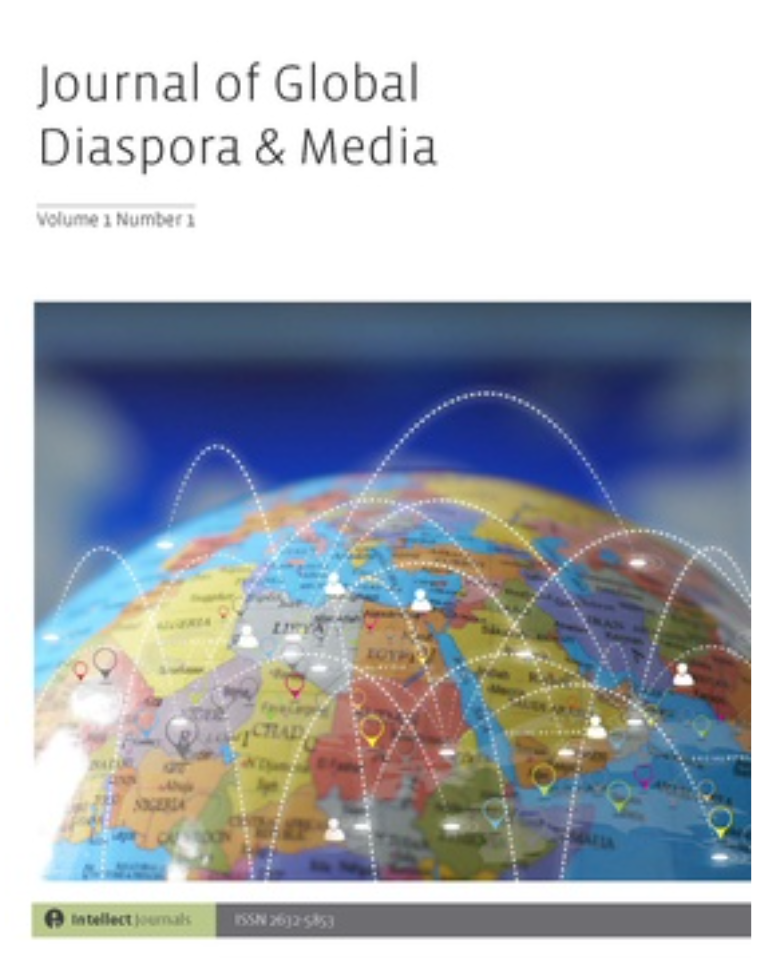 How to Shape Black Diasporic Identity in France by Reading (About) Literature
How to Shape Black Diasporic Identity in France by Reading (About) LiteratureThis article gives an overview of francophone African diasporic websites such as Africultures.com, africavivre.com and other digital magazines, networks and blogs that are present on different platforms. Taking recent novels, texts of liter- ary criticism, reviews and comments as examples, I analyse in what way they share in discourse about diasporic and migratory identity positions of Afropéens (‘Afropeans’) (and differ therein from other readings of the same novels). Methodologically, I draw on Stephen Greenblatt’s concepts of self-fashioning and circulation of social energy as well as on Pierre Bourdieu’s notion of the produc- tion of social capital. With respect to socially preformed discursive formation of Black people as an ostensibly homogeneous minority in the twenty-first century France, I refer to Pap Ndiaye’s ground-breaking study La condition noire from 2009 which closely analyses the complex situation of the Black migrant and post- migrant population. I focus on two narrative texts which are widely perceived both in France and on an international level: First, the autobiographically inspired novel Le Ventre de l’Atlantique (The Belly of the Atlantic) by Fatou Diome and second, Marie Ndiaye’s narrative triptych Trois femmes puissantes (Three Strong Women). Studying remarks and comments of literary criticism concern- ing these texts on francophone African diasporic websites, I raise the following questions: What relevance do these narrated characters (still) have today? To what extent do they shape the discourse of Black migrants in France? What kind of interpretation of the colonial history and context do they offer? And which emancipatory moments and decolonial strategies create a new, proper symbolic capital and, thus, add to the Imagined Community of ‘Noirs en France’ (‘Black people in France’)?
-
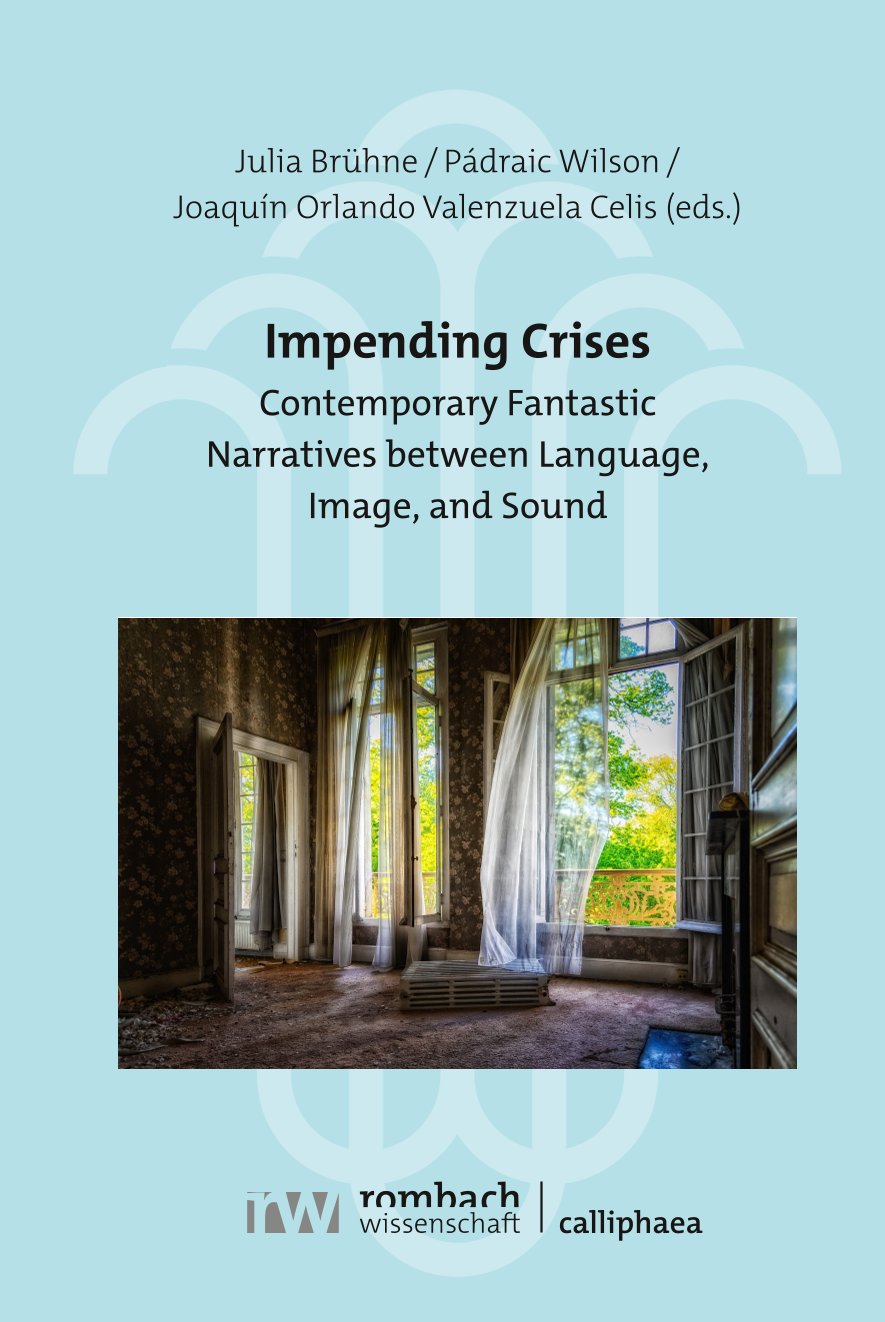 Between Fantasy and Horror: La nuée (2020) by Just Philippot as a Film about the Ecological Crisis of the Anthropocene
Between Fantasy and Horror: La nuée (2020) by Just Philippot as a Film about the Ecological Crisis of the AnthropoceneThis contribution deals with the contradictions of nature and agricultural economy in the contemporary moment of crisis in the Anthropocene. It is based on an analysis of the fantastic French film La nuée (The Swarm) by Just Philippot who reflects by this film also on the turning points from the preception of reality to obsession and from the uninjured body to the damaged body, or even from live to death resepctiveley from live instinct to death drive.
-
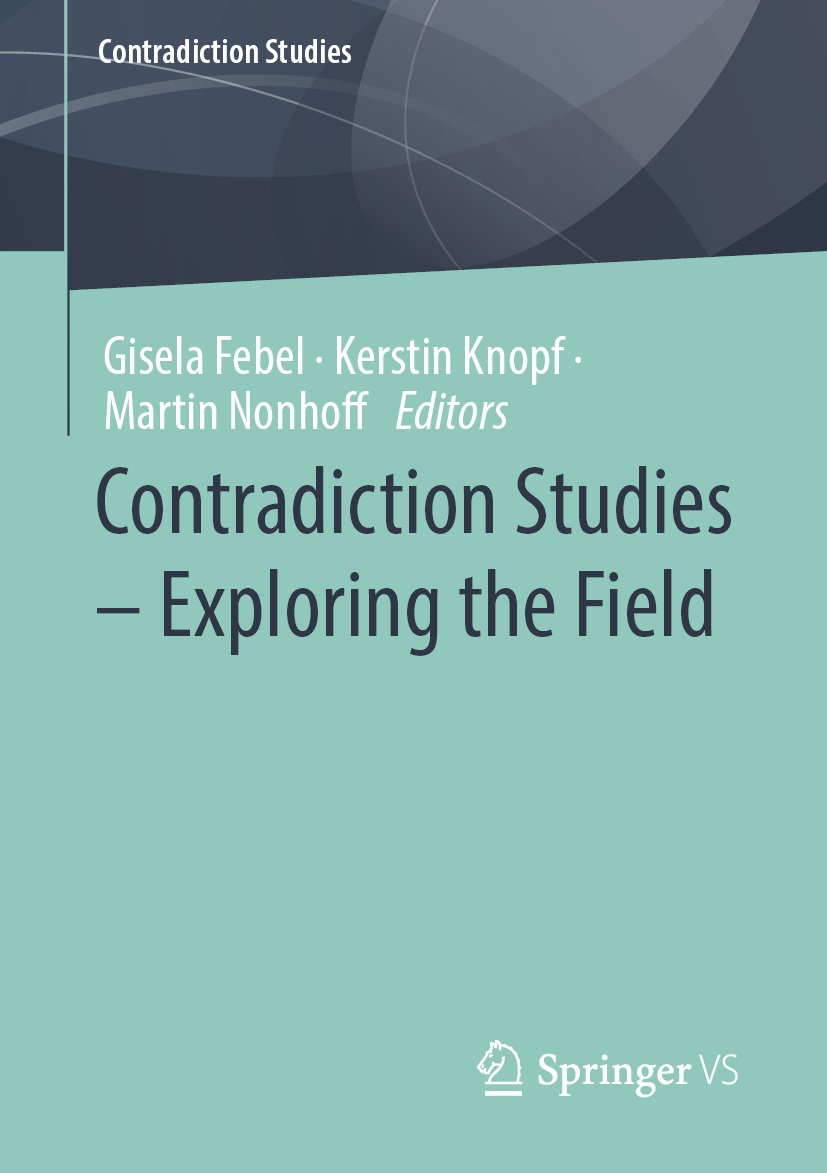 Contradiction Studies – Exploring the Field. An Introduction
Contradiction Studies – Exploring the Field. An IntroductionSince antiquity in Greece, the Law of Non-Contradiction (LNC) is considered to be the foundation of all philosophy. As Aristotle maintains in Metaphysics, “the same attribute cannot at the same time belong and not belong to the same thing and in the same respect” (1005b, 19–23).
-
 Contradiction Studies – Exploring the Field
Contradiction Studies – Exploring the Field“Contradiction” is a core concept in the humanities and the social sciences. Beside the classical ideas of logical or dialectical contradiction, instances of “lived” contradiction and strategies of coping with it are objects of this study. Contradiction Studies discuss the many ways in which explicit or implicit contradictions are negotiated in different political or cultural settings. This volume collects articles that tackle the concept of contradiction, practices of contradicting and lived contradictions from a number of relevant perspectives and assembles contributions from linguistics, literary studies, philosophy, political science, and media studies.
-
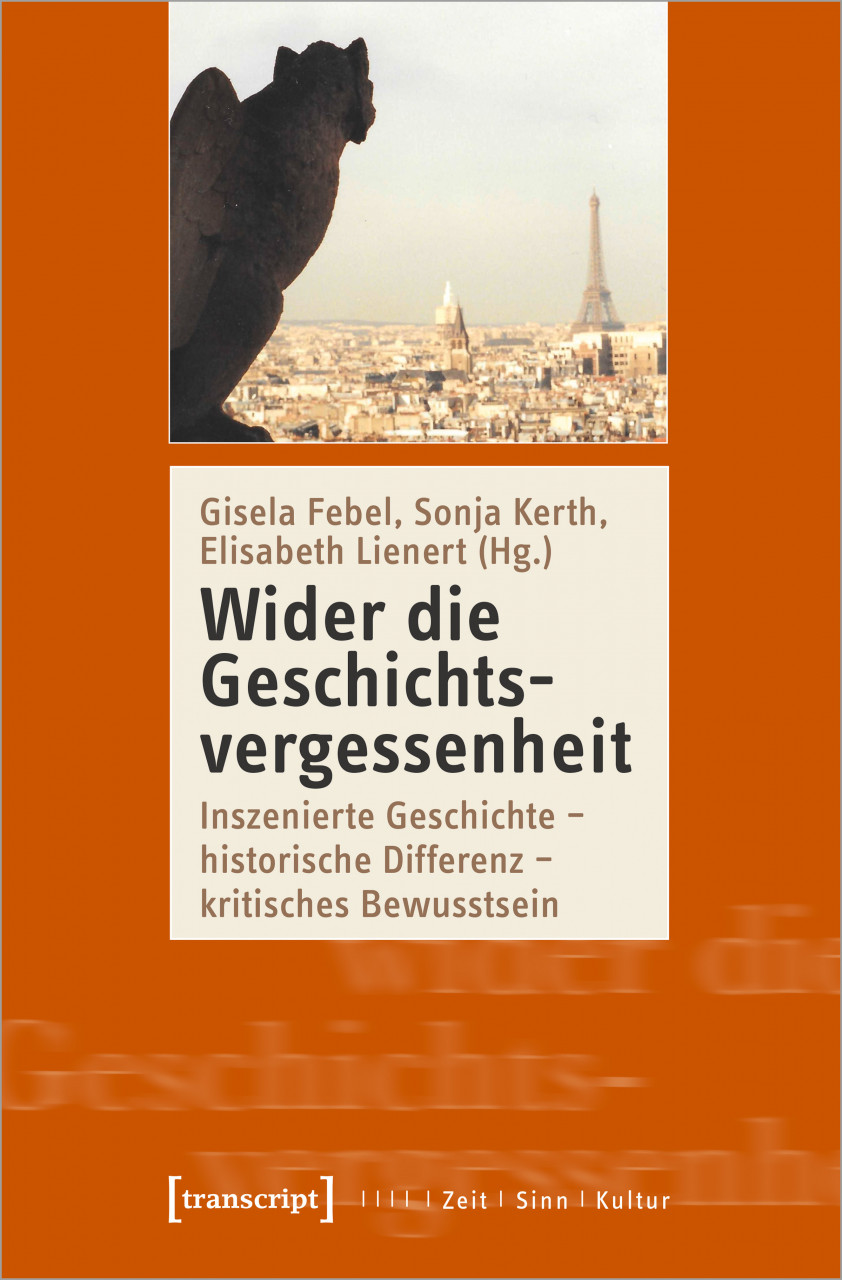 Wider die Geschichtsvergessenheit. Inszenierte Geschichte – historische Differenz – kritisches Bewusstsein
Wider die Geschichtsvergessenheit. Inszenierte Geschichte – historische Differenz – kritisches BewusstseinAngesichts des wachsenden Populismus und Rechtsradikalismus ist der Kampf gegen Geschichtsvergessenheit im Denken und Handeln wieder höchst aktuell. Auf den ersten Blick scheint Geschichtsvergessenheit – zumindest in Bezug auf die Vormoderne – aber kaum vorzuliegen: Mittelalter, Renaissance und Frühe Neuzeit erfahren in Romanen, Dramen und populären Medien einen Boom. Doch auch und gerade hier ist ein aktives An-Denken gegen Simplifizierungen, Mythisierungen und Verfälschungen dringend nötig. Die Beiträger*innen des Bandes zeigen, dass es für ein kritisches Bewusstsein unumgänglich ist, historische Differenz und mediale Filter wahrzunehmen und deren Effekte zu reflektieren.
-
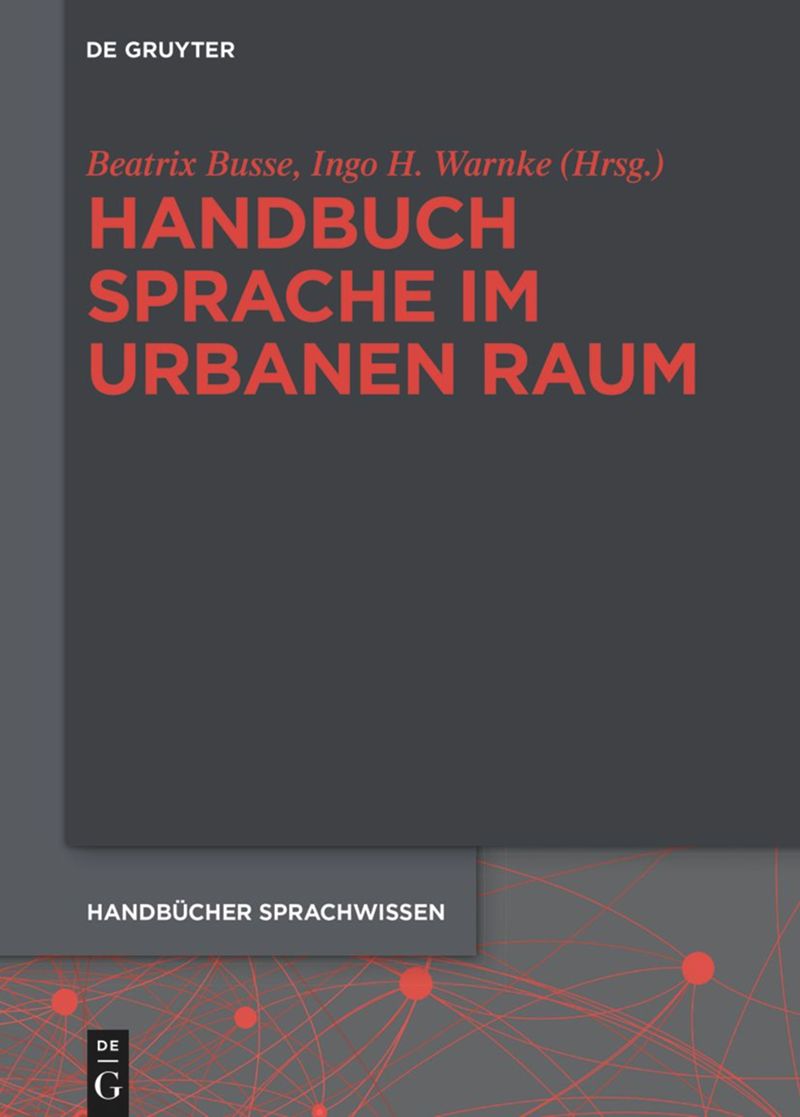 Melancholy Objects Remixed. A Multimodal Counterstatement on Photography in Urban Linguistics
Melancholy Objects Remixed. A Multimodal Counterstatement on Photography in Urban LinguisticsThe chapter discusses the use of photographs in research on Linguistic Landscape. Based on the observation of a widespread use of photographic documentation, the status of photographs is critically reflected. The focus lies on a reading of Susan Sontag’s ([1977] 2014) Melancholy Objects. Here, conceptions of description and documentation are questioned, as they are common for some linguistic works, especially in the field of Urban Studies. Of particular importance is the examination of the tension between realism and surrealism as well as the question of the extraction of reality. The text, which is a remix of Susan Sontag’s ([1977] 2014) thoughts, is complemented by twenty photographs that address the limits of photographic representation in the linguistic text.
-
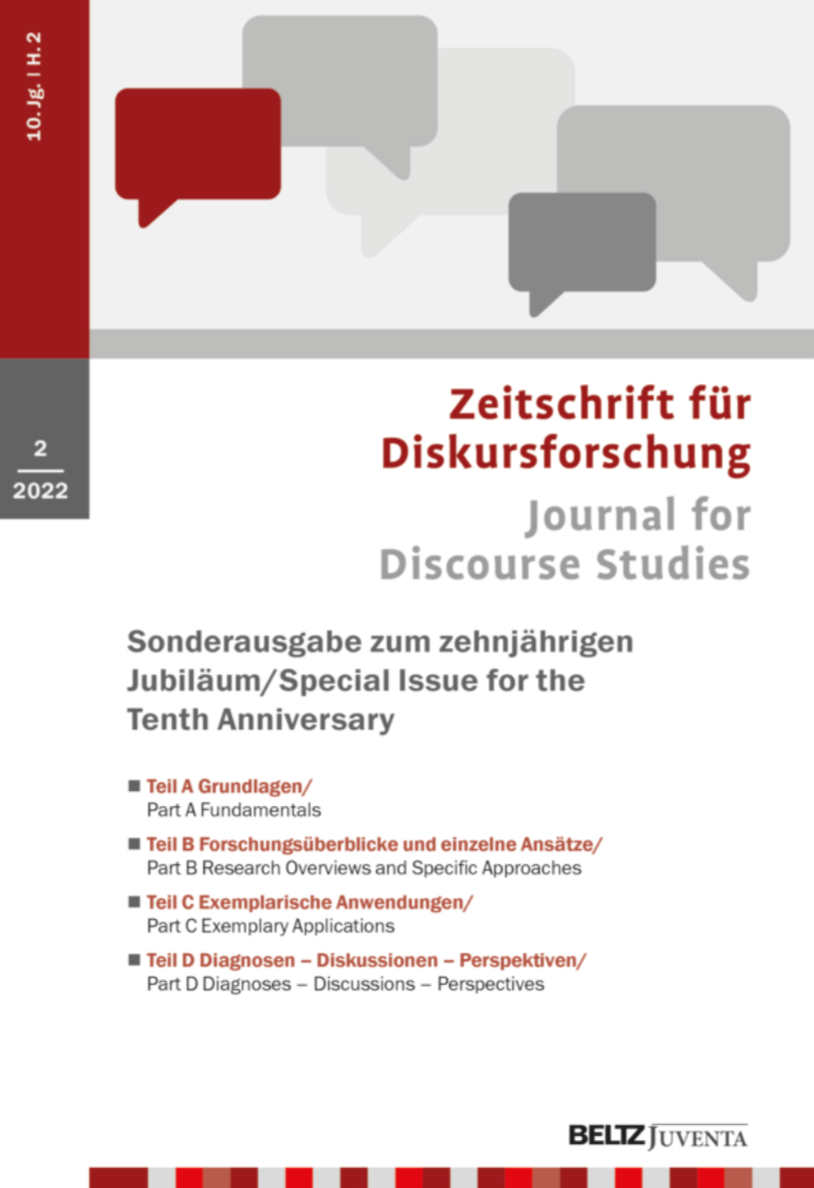 Mythos Zuhören – Bemerkungen zur Diskursphänomenologie gerichteter Aufmerksamkeit
Mythos Zuhören – Bemerkungen zur Diskursphänomenologie gerichteter AufmerksamkeitAusgehend von der Omnipräsenz beschönigender Rede über Zuhören fragt der Essay nach dem Beziehungsgeflecht von Zuhören und Diskurs. Einem verbreiteten Mythos, in dem Zuhören isoliert als replikative Handlung verstanden wird und Unwägbarkeiten des Zuhörens systematisch überdeckt sind, wird die Annahme gegenübergestellt, dass Zuhören Sprache im Widerspruch ist und als solche konstitutiv für Diskurse und vice versa. Gefragt wird nach Möglichkeiten einer Soziolinguistik des Zuhörens und insbesondere nach einer konzeptionellen Einordnung des Zuhörens im Spannungsfeld von Positivität der Rede und Intentionalität des Zuhörens. Ich spreche von Diskursphänomenologie, ohne zu übersehen, dass damit eine auch wissenschaftshistorische Gegenüberstellung von Diskursanalyse und Phänomenologie aufgebrochen wird.
-
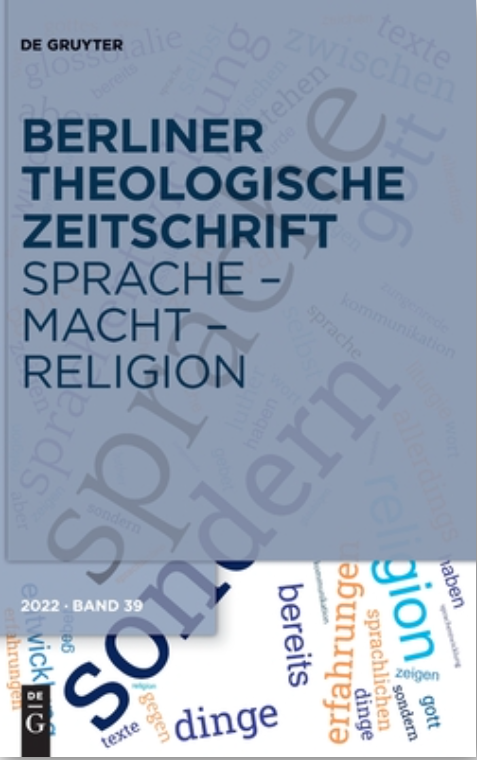 Religion im kolonialen Archiv
Religion im kolonialen Archiv
-
 Diskurs ist Widerspruch
Diskurs ist Widerspruchaptum Themenheft Widersprüche